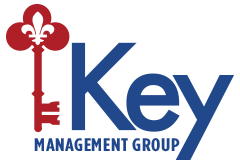The problem is universal – Hotels with limited capital reserves and fixed overhead expenses cannot afford to reengage their revenue generating activities given the low demand in the marketplace.
The terrible impact of Covid on the hotel industry can be best observed with the exceptionally high amount of furloughed teams and hotel closings over this past year. According to the AHLA, 68% of hotels have less than half of their normal full-time staffing levels. Fixed payroll expenses and reduced capital reserves are hindering hotels’ abilities to reopen their revenue-generating activities.
PAY FOR PERFORMANCE HOTEL COMMERCIAL SERVICES
The solution comes in the form of our Pay for Performance revenue and marketing services. With this business model, hotels benefit by receiving expert revenue and marketing support services, paying a percentage only for the revenues generated by Key Hotels. The hotel does not incur fixed Sales & Marketing payroll expenses or any other general marketing expenses including promotions, digital marketing, photography, revenue management systems, etc.
MITIGATE FINANCIAL RISK
With our Pay for Performance solutions, hotels mitigate their financial risk. Should the hotel close its doors once again due to Covid, the hotel’s financial exposure would be limited to the revenues it receives. Sales Department expenses are absorbed by Key.
ELEVATE TOP-LINE HOTEL PERFORMANCE
Our hotels benefit with elevated RevPAR performance from our powerful revenue management platforms. We offer automated rate setting tools, market demand coefficients, airlift analysis, competitive rate shops, pick-up tracking, predictive demand analysis, and market segmentation & geo-targeted pricing. Complementing this technology, our expert Revenue Team offers weekly market mix performance reporting, monthly rolling forecasts, and annual budgeting & business planning.
EXPERT STRATEGIC HOTEL REVENUE MANAGEMENT
Our hotels benefit from the strategic revenue management leadership offered by our expert revenue management teams, experienced drawn from executive roles with the world’s finest hospitality companies including the Ritz-Carlton, Hilton Worldwide, and Marriott International. Our hotels benefit with elevated RevPAR performance from our powerful revenue management platforms.
We offer automated rate setting tools, market demand coefficients, airlift analysis, competitive rate shops, pick-up tracking, predictive demand analysis, and market segmentation & geo-targeted pricing. Complementing this technology, our expert Revenue Team offers weekly market mix performance reporting, monthly rolling forecasts, and annual budgeting & business planning.
ECONOMIES OF SCALE
Global Distribution – Our hotels benefit the shared revenue generating solutions provided by Key, elevating the hotel’s top-line performance. Our Team specializes in the worldwide distribution of our hotels’ rates and availability matched with professionally curated digital marketing content, sent everywhere and updated in real-time to thousands of travel accounts around the globe.
Please contact John Laclé, Managing Director for Key Hotels and Resorts for a consultation review . jlacle@keyhotelsandresorts.com.

